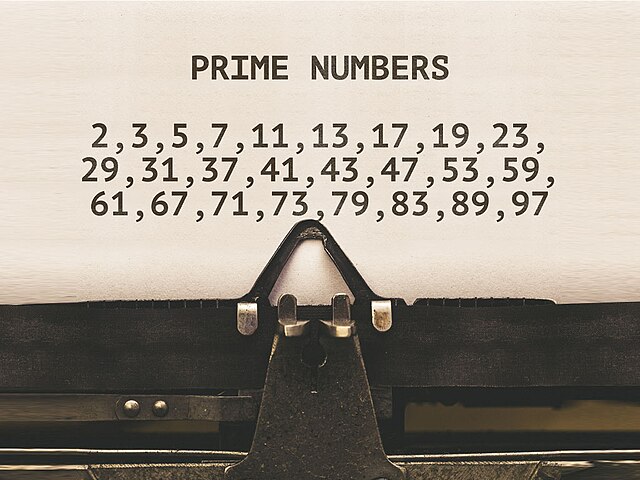
Record Breaker: The Largest Prime Number
Starting With The Basics
A prime number is a whole number greater than 1 that can only be divided evenly by 1 and itself, like 2, 3, 5, and 7. They are unique because they can’t be broken down into smaller factors, unlike other numbers.
Why Are These Numbers Important In The Real World?
Prime numbers are valuable for more than just their uniqueness. For example, they are crucial to cryptography, which keeps digital systems secure. Very large numbers with large prime factors are especially useful because they’re hard to factorise (that is, to find the prime factors). Many digital security systems, such as those protecting online banking and private messaging, rely on this difficulty. These systems multiply two large prime numbers to create an even larger number, forming part of the “key” that secures information. Since breaking this number down into its original primes is so complex, unauthorized parties cannot easily intercept and read secure messages without the proper key.
Finding The Greatest
Given the critical role of prime numbers in securing information in today’s digital world, the recent discovery of the largest-ever is noteworthy. In theory, larger prime numbers mean stronger cryptographic potential and more secure systems.
Luke Durant, a 36-year-old researcher and former NVIDIA employee, identified this newest number using the Great Internet Mersenne Prime Search (GIMPS), a free programme available to the public. He used an advanced algorithm to make the discovery. A Mersenne prime is a prime number that can be expressed in the form Mn = 2n-1. The first eight Mersenne primes are 3, 7, 31, 127, 8191, 131071, 524287, and 2147483647.
The newly discovered prime, now the largest known, is 2136,279,841-1, having 41,024,320 decimal digits. The find was far from a pen-and-paper calculation or a single-PC task; Durant required thousands of GPUs across 24 data centres in 17 countries. After a year of testing, he identified the number on October 11, 2024, marking a monumental achievement and highlighting why discoveries of new large prime numbers are so rare.
Implications Of Discovery
While this is an exciting breakthrough, the researchers acknowledge that Mersenne primes currently have few practical applications, particularly in cryptography, ironically. Due to their rarity and the fact they are well-documented, they are not ideal for encryption as they would be relatively easy to guess. Nonetheless, this discovery pushes the boundaries of number theory and computing power, setting a new milestone in the search for ever-larger prime numbers.
If you are interested n studying Maths, Oxford Open Learning offer the chance to do so at several levels, listed below. You can also Contact Us.